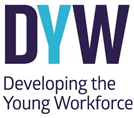Plot of Oliver Twist
Oliver is an orphan living in a workhouse. He is treated badly and runs away to London, where he meets Jack Dawkins and Fagin. Unfortunately, Oliver does not realise he is living with a criminal gang and gets arrested when they steal from wealthy Mr Brownlow.
Mr Brownlow takes Oliver home and looks after him, but Fagin sends gang members to kidnap him, and forces Oliver to help with a burglary at another house. It goes wrong and Oliver is shot.
Meanwhile, the gang and Mr Brownlow are both uncovering Oliver’s past and true identity.
Discover more about Charles Dickens,
|
Author – Charles Dickens
A short biography of Charles Dickens
Charles Dickens animated life story (Awesome stories)
(The video above may not be visible in school.)
Themes – universal ideas
Causes of crime, fear, good versus evil, identity, poverty.
More to explore – motifs, symbols, context, setting
19th century London, baby farms, child labour, clothing, countryside, crime and punishment, funerals, Industrial Revolution, names, orphans, pets, police, social reform, street children, Victorian Britain, workhouses.
Did you know?
Dickens wrote his novels to be published as a serial. Two or three chapters would appear each month in a periodical (magazine). Oliver Twist appeared gradually over two years between February 1837 and April 1839.
The Poor Laws were updated in 1834. Oliver Twist starts to be published in February 1837, which suggests how worried Dickens was about their effect.
You can discover more about the Motherwell Poorhouse at The Workhouse website and through CultureNL.
Further reading
Discover these titles and more
|
If you enjoyed Oliver Twist, try these titles:
Dodger by Terry Pratchett tells the story of the Artful Dodger as a 17 year old as he wanders around London, rescuing a young girl from a beating, helping himself to the occasional pocket and bumping into famous people.
Victorian workhouse : the diary of Edith Lorrimer, England 1871 by Pamela Oldfield is a diary of one young girl’s life. Library copy available.
Coram Boy by Jamila Gavin tells the story of how one man tried to save more children in Victorian England. Library copies available.
The Sally Lockhart series by Philip Pullman is about a young woman working as a detective in Victorian times. Library copies available.
Montmorency by Eleanor Updale is also set in the 19th century and tells the story of a thief who ends up as an even more successful thief following a horrendous accident. Library copy available.
Great expectations by Charles Dickens is about another young boy who grows up to be a wealthy man thanks to an unnamed benefactor. Library copy available.
The Charles Dickens Page is full of additional information about the author.
The British Library’s Charles Dickens pages include lots of interesting background about his works and images from their own collection.
Literacy and Language
Dickens’ characters often have strange names, but when you look closer, you might notice something: the names are often full of puns that suggest what the character’s personality is like. Sometimes they can be difficult to spot because English vocabulary has changed since Dickens’ was alive.
Numeracy
Coins have changed since the 19th century. Sovereigns and guineas are mentioned in the book.
How much are these coins worth? Can you find any other names for coins in the 19th century?
Health and Wellbeing
One of the most famous scenes in Oliver Twist involves Oliver asking for more food.
The workhouse diet allows the boys “three meals of thin gruel a day, with an onion twice a week, and half a roll on Sundays.”
Can you find out exactly what gruel is?
The Eatwell Guide describes a healthy diet across one week. Can you identify the sort of foods that are missing. Does this suggest Oliver has a healthy diet?
Rights Respecting Schools
 Article 12 requires respect for the views of the child.
Article 12 requires respect for the views of the child.
Are Oliver’s opinions ever considered? What would he have disagreed with?
Developing the Young Workforce
 Oliver is very successful in his work for the undertakers.
Oliver is very successful in his work for the undertakers.
What skills and qualities help him?

